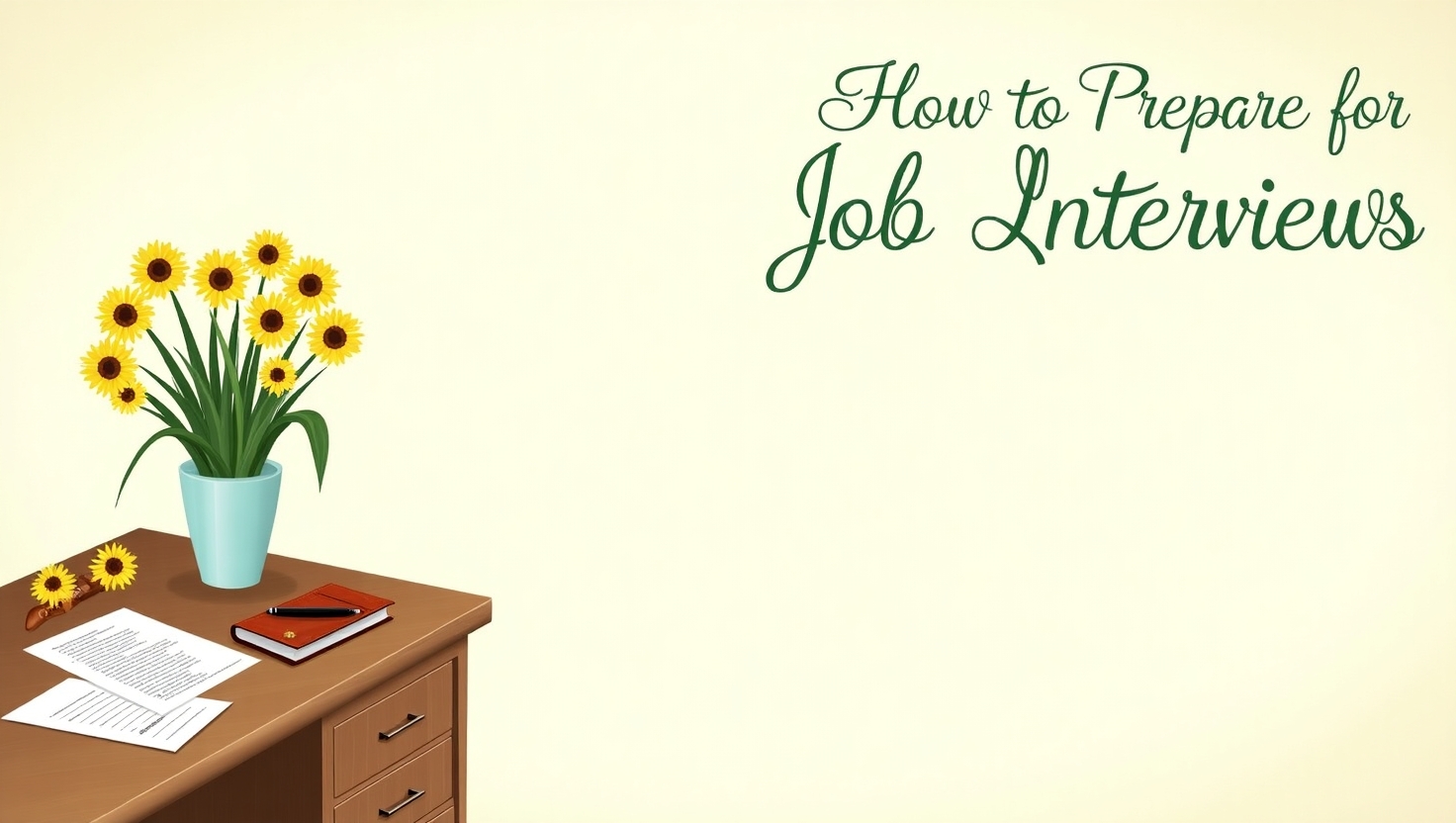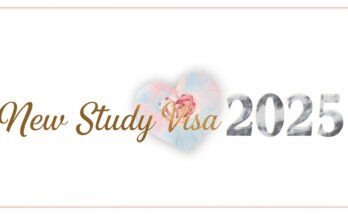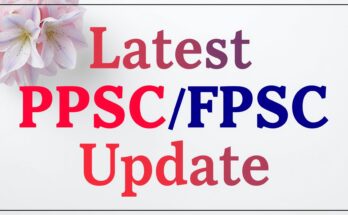Job interviews may be both exhilarating and nerve-wracking. Whether you’re a recent graduate, changing careers, or simply looking for a better chance, interviews are the gateway to your professional ambitions. The good news is that with adequate preparation, you can walk into any interview room with confidence and make a lasting impression. In this post, we’ll cover all you need to know about how to prepare for job interviews, from researching the organization to following up later.
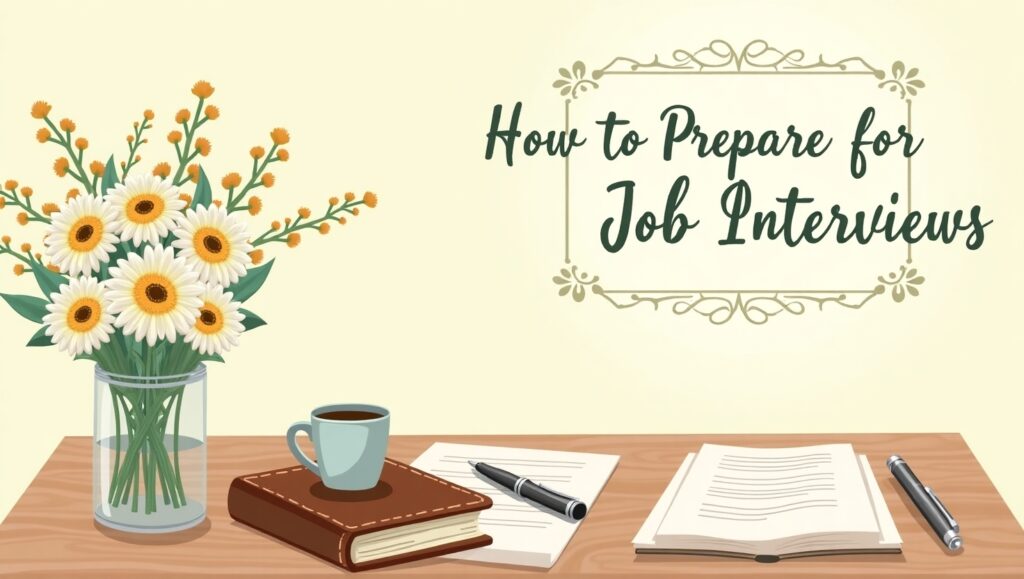
Research the Company Thoroughly
Before entering into the interview, make sure you understand the organization you’re applying to. Learn about: The company’s mission and values Its products or services Recent news or achievements The team or department you’ll be joining Visit their official website, LinkedIn page, and latest press releases. This can help you answer the usual question: “Why do you want to work here?” It also shows the interviewer that you’ve done your homework and are genuinely interested.
- Understand the Job Description
Carefully read the job posting and take notes. Identify: The key tasks Required qualifications Desired skills and experiences Then, think about how your background connects with the role. Prepare examples from your former work or education that match the employment requirements. This will help you answer behavioral questions successfully and make your responses more relevant.
Practice Common Interview Questions
Practicing responses to regularly requested interview questions can dramatically enhance your confidence. Examples include: “Tell me about yourself.” “What are your strengths and weaknesses?” “Why should we hire you?” “Describe a time you handled a challenge.” “Where do you see yourself in five years?” Use the STAR approach (Situation, Task, Action, Result) to structure your responses. Practicing in front of a mirror or with a friend can also help you improve your delivery and body language.- Prepare Your Own Questions
At the end of the interview, most companies will ask if you have any questions. Always say yes. This is your chance to: Show your excitement Learn more about the company culture Clarify job expectations Good questions to ask include: “What does a typical day look like in this role?” “How is performance measured?” “What are the next steps in the hiring process?” Avoid asking about compensation and benefits in the first interview unless the employer brings it up.
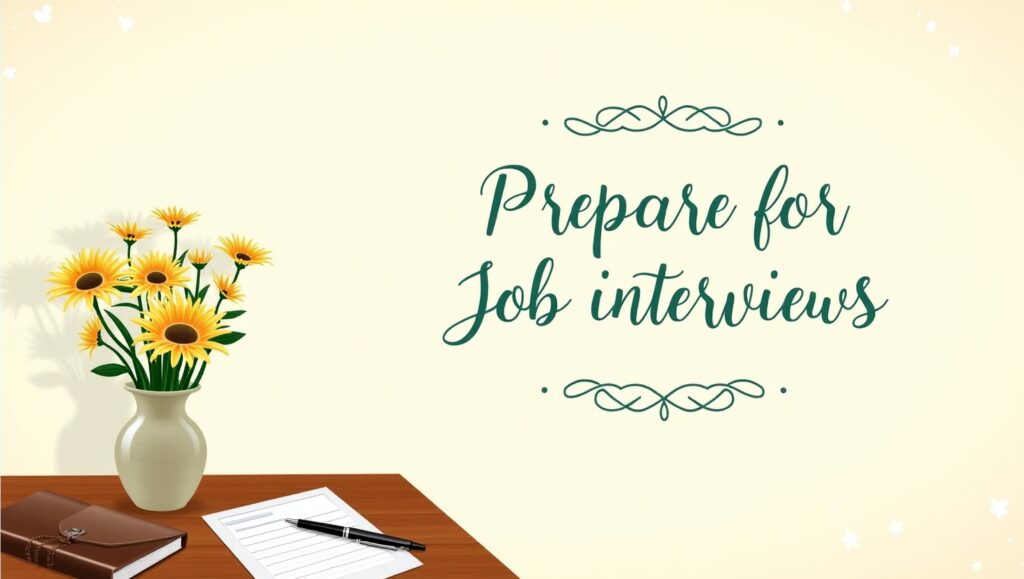
Dress Professionally
First impressions matter. Choose an outfit that suits the company’s dress code. When in doubt, go for business casual or dressy. Make sure your clothes are clean, well-fitted, and wrinkle-free. Groom oneself properly—neat hair, clean nails, and minimum accessories. Dressing well communicates respect and professionalism.- Plan Your Journey and Be Punctual
Whether your interview is in person or online, plan ahead: For in-person interviews: Know the location, commute duration, and parking situation. Aim to arrive 10–15 minutes early. For virtual interviews: Test your internet, microphone, and camera the day before. Choose a peaceful, well-lit background and log in at least 5 minutes early. Being on time displays responsibility and punctuality—traits every employer values. - Bring the Essentials
For in-person interviews, bring: Multiple printed copies of your resume A list of references A notebook and pen Your ID and any papers requested These products show you are organized and prepared. For online interviews, keep digital copies of your résumé and any portfolio material ready to share. - Be Confident and Communicate Clearly During the interview: Greet your interviewer with a grin and solid handshake (in-person) Maintain eye contact and sit upright Listen carefully to the questions Speak clearly and eliminate filler words like “um” and “you know” Confidence doesn’t mean being overly forceful. It’s about being calm, considerate, and well-spoken.
Follow Up After the Interview
Within 24 hours, write a thank-you email to the interviewer. Express your gratitude for their time and briefly say why you’re delighted about the chance. A simple, polite message can leave a positive impression and sustain your interest. Example: Dear [Interviewer’s Name],
Thank you for taking the time to chat with me today. I loved learning more about the [Job Title] function and [Company Name]. I’m delighted about the opportunity to contribute to your team and offer value to your organization. Please feel free to reach out if you need any more information.
Best regards,
[Your Name]- Learn and Improve
Regardless of the outcome, every interview is a learning experience. After each one, ask yourself: What went well? What could I improve? Were there questions I grappled with? Reflecting on your performance helps you improve and get better over time
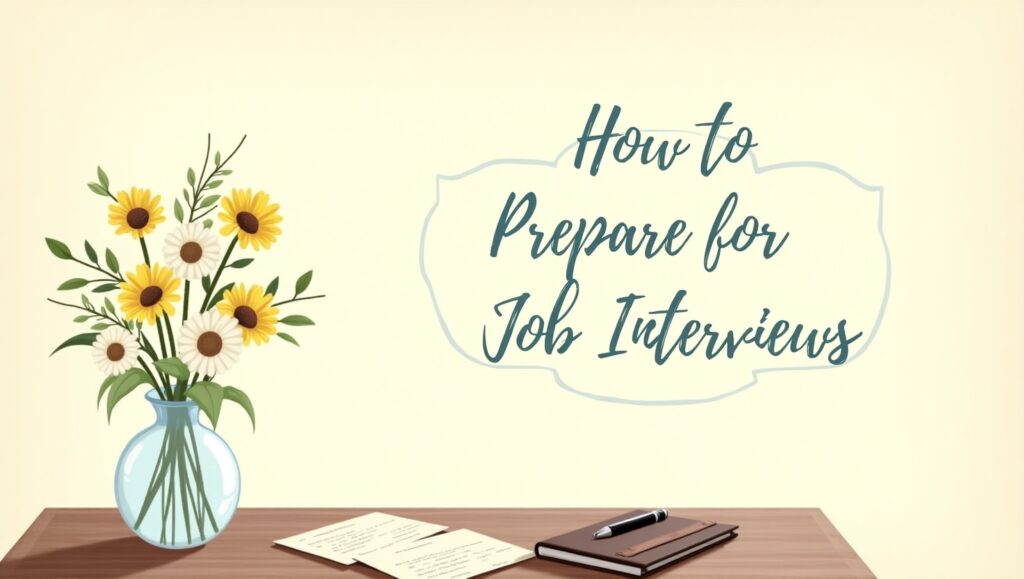
. Final Thoughts
Preparing for job interviews might feel stressful, but it doesn’t have to be. With knowledge, practice, and the appropriate mindset, you can approach every interview with confidence and clarity. Remember, employers aren’t simply hiring skills—they’re recruiting people. Be real, be prepared, and be ready to show them why you’re the best fit. A well-prepared applicant shines out in any business. Follow these measures, keep positive, and you’ll dramatically boost your chances of finding your dream job.
